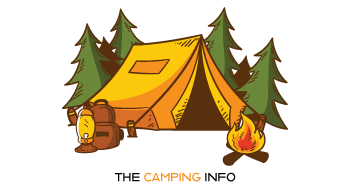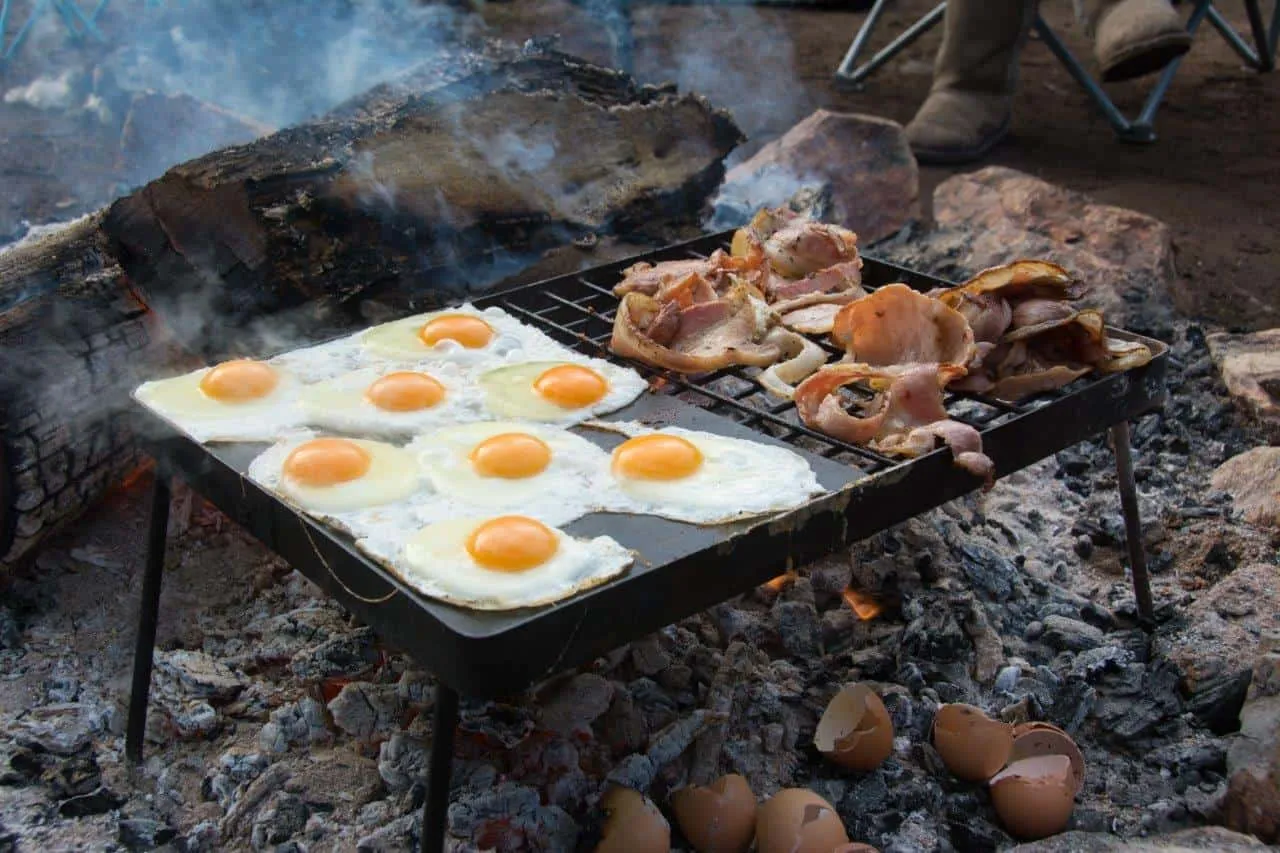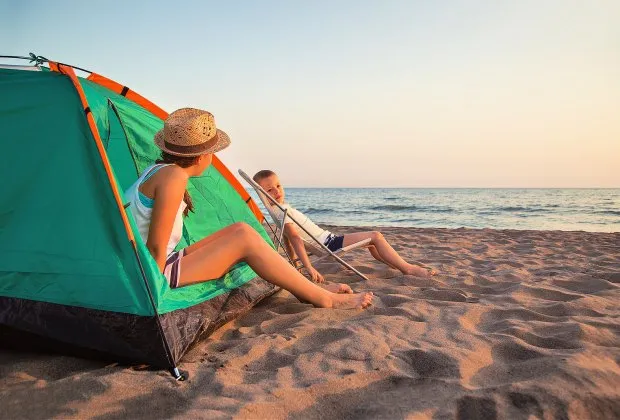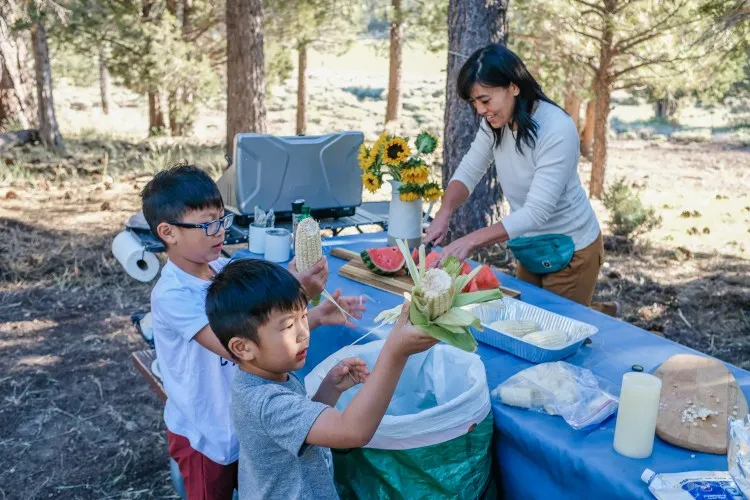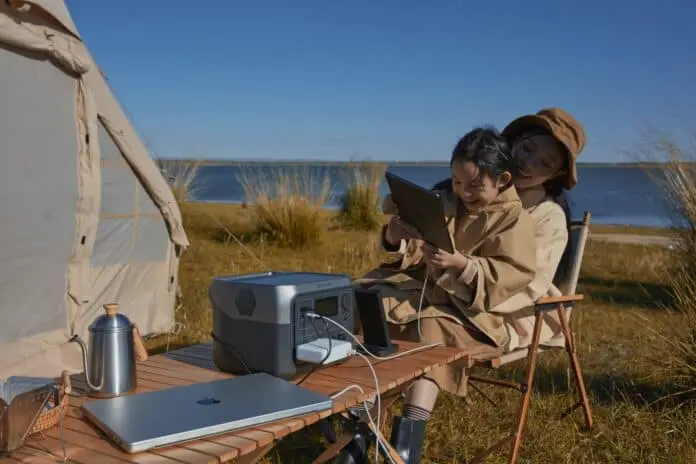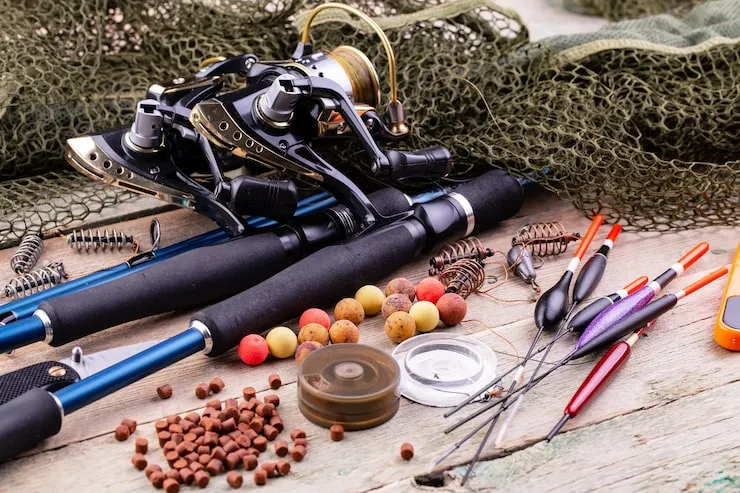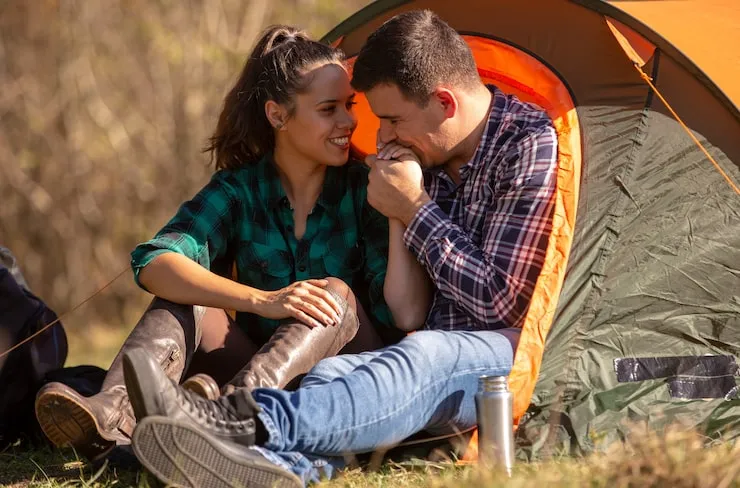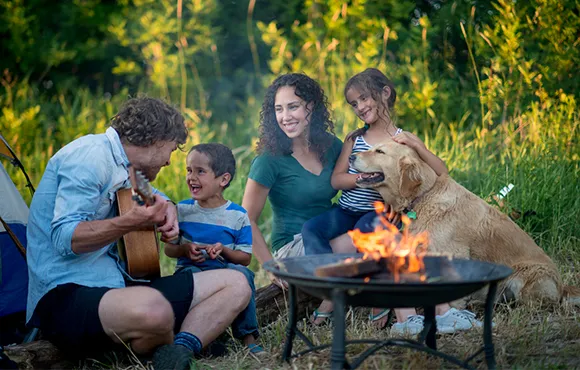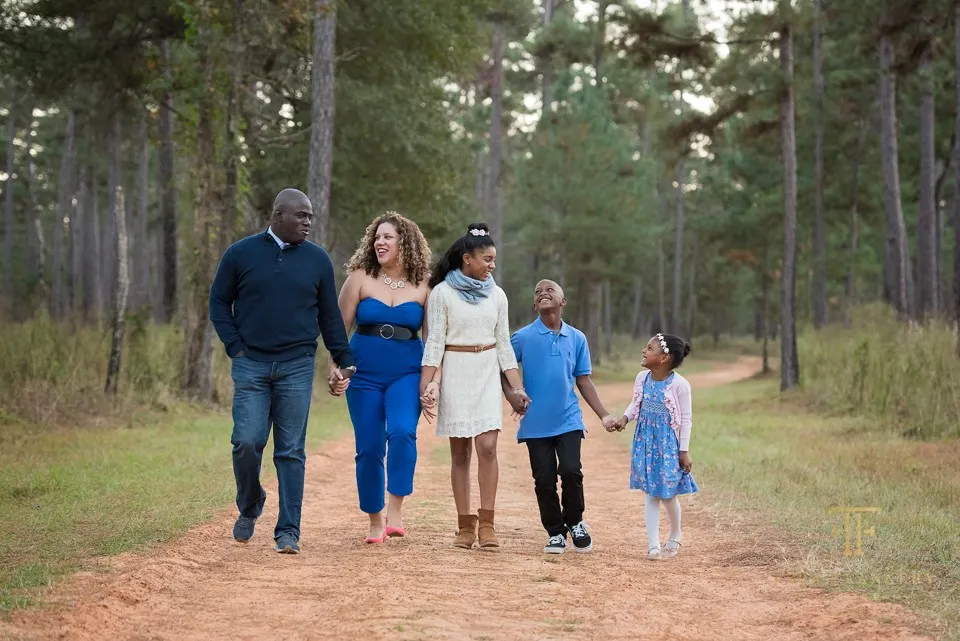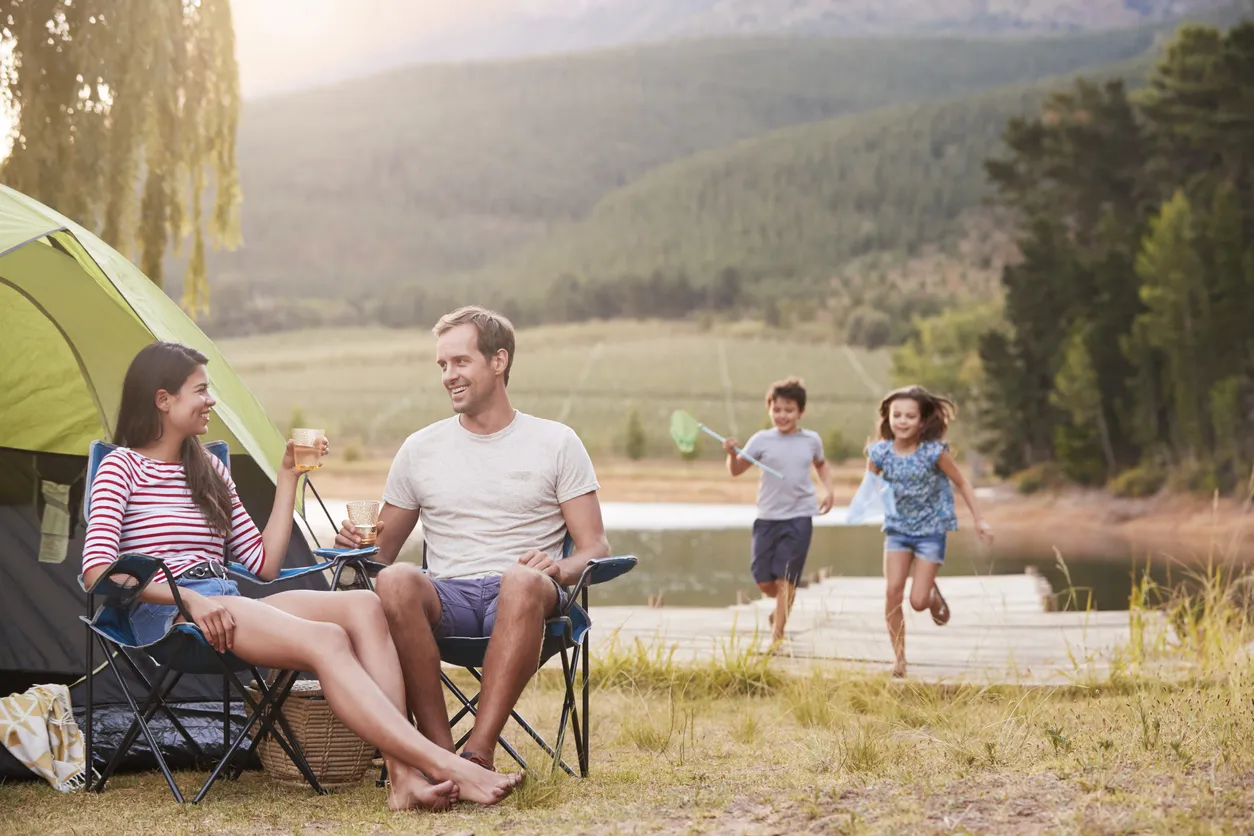Exploring the Camping With Kids. Many believe that, when camping with children, they have to create complex transport and entertainment schedules. Based on personal experience, most kids require very less entertainment. For the youngsters, simple visits are usually more enjoyable since they inspire imagination.
Ever find yourself feeling as though family bonding time has to be forced? Often accompanying "distraction-free" family time at home are unhappy murmurs. In a plugged-in world, all the kids spend time with you, without the disturbance of cell phones, video games or internet, is less than tempting.
The fix is have your family camping. Although you might have to overcome some early objections, camping checklist with kids is among the best ways you can spend time with your family. Your children won't even notice they are bonding with you given little distractions and so much to do.
These eight tips can help you maximize your trip and guarantee lots of valuable family time.
Of course, let me not sugarcoat anything.
Things can get unpleasant quite rapidly. There will come that moment—usually during a downpour—when you really start to doubt packing mid-trip and wonder how you ever thought this was worth it.
You will know why it is totally worth it, though, if you persist with it and push somewhat beyond the discomfort. These young years let for a particularly elevated and attractive experience by their innate impulses toward surprise, joy, and excitement.
Read Also: Dinosaur Camping Tent - What You Need To Know
Advice For Camping With Young Children
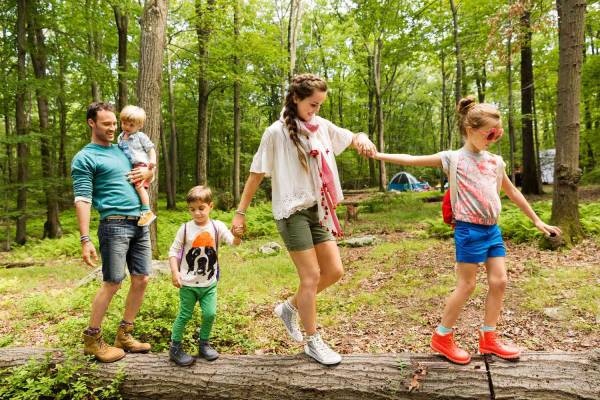
Accept the reality that it can and will become uncomfortable.
Having a great trip depends on first being at peace with this. For both children and adults, the camping environment is a fantastic location to develop resilience.
Keep your camping equipment ready-packed.
Building a camping box was among the best things I have ever done. Almost all of our camping-specific equipment is kept in one place in our forty-gallon bag. This has greatly simplified our camping readiness and save me many problems.
The best friend of a parent is maximum efficiency; a well-designed, orderly camping box opens the path to more laid-back camping excursions.
Your family will have unique box configuration. Still, some things to give thought:
Spend some time considering how it should be set up such that it makes logical sense—that is, if you start with the tent and sleeping bags on top.
Think on what you really need on every trip and just pack those items. Less things means less turmoil, and you can get by with far less than you might believe. (Keep in mind, each trip will have unique packing for food and clothing.)
As you pack them at the end of the vacation, clean them so you won't have to break apart the box once back home. Then assign one person to oversee the box such that it is repackled consistently.
At the top keep a notepad to note anything requiring replacement, care, or addition.
Set aside food ahead of time.
The traditional hot dogs/chips/s' mores dinner plan is guaranteed to never go wrong! If you appreciate some variation, though, you might be motivated to branch out—after all, food is only half the experience.
Cooking on a campsite may get difficult when little children are underfoot. A small amount of preparation done at home can make a tremendous difference. This could appear like:
Read Also: 8 Tips For Winter Camping In Victoria
Cutting veggies before cooking
Pre-cooking meat—ground hamburger, sausage slices, etc.—that will be included into a larger recipe
Combining the spices for your recipe or several ahead
Making a scrambled egg or pancake mix and then packaging it in a pourable container or jar.
Although they seem basic enough to easily do at the campsite, camp cooking with hangry kids milling around can be unpleasant and take more time than you would have imagined. Then, simplify!
Making double versions of your normal home meals and freezing the extra for Camping With Kids is another excellent tip. You may do this any time of year. Pull it from the freezer just before you leave, let it thaw on the journey (or during the day at the campsite), then simply reheat it over your camp stove or fire for dinner!
Calm down.
Tiny children slow you down. In the hurry of modern life, this is not always ideal. But the ideal friend to it is nature.
Get a page from the book of your toddler. Spend some time stopping to pay attention to every small detail. The longer you sit and really study something, even the most apparently dull thing—like the 20th rock they throw you—can become intriguing.
Read Also:
Actually pay close attention to the questions your children ask—they will be plenty. Spend some time considering the responses without running through your phone. Look up and practice deep breathing using their frequent stops.
Let yourself be marveled, not entertained.
Let nap time free some room.
The hours of camping usually go by rather unnoticeable. This is excellent in many different ways. But it can cause one to forget nap times easily. And each of us has been on the receiving end of that.
Build in the campsite in calm time. Look for "cheats" at nap time. For instance, we usually arrange to start the drive just around normal nap time so that our children just conk out in the car if we are on an outing away from camp that calls for a little driving. Should your child find it simple to go asleep in a carrier, you might possibly schedule a light walk around that time.
Replicate your evening ritual.
Camping will inevitably throw off the consistency and schedule most children live on. Sleeping outside can also be quite comforting or quite challenging for a child (my eldest did fine as a baby and battled as a toddler). And occasionally all that fresh air and thrills backfires, leaving one exhausted.
The moments when we have had the best success with nighttime sleep come when we follow the regular evening rituals for our sons. As much as we can, we keep everything the same: time, bedtime ritual, book reading, etc. Make sure you also include any current nighttime comforts.
Hold low expectations.
Children may be erratic. Mother Nature is not always consistent. The two taken together could produce a very different experience than you had hoped for.
Establish a ritual particularly for you.
Have a secret-extra-special-just-for-you camping thing whether this is a glass of the good stuff around the fire, sneaking out of the tent for some alone time while you star-gaze, or making the "fancy" coffee in the morning (my personal fav).
Keep in mind: It requires work.
Let a terrible journey not demoralize you. Camping with children requires experience, whether or not seasoned camper. Begin modest and straightforward. Everything and everyone gets more comfortable the more you do it.
The outdoors is the setting most boundlessly enriching for all ages concurrently. Camping with children of any age can truly be a wonderful return-on-investment for the complete family with a little bit of foresight, flexibility, and deep breaths.
Start Your Children Off Surprising Them
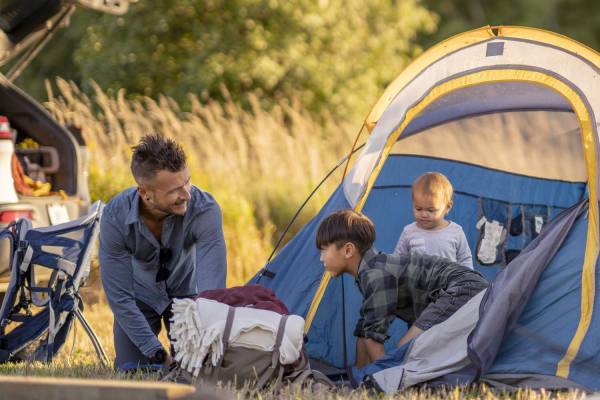
After arriving early at our destination last summer, I proposed that we all see an afternoon matinée movie in the small town of Salmon, Idaho. Given that we hardly go to the movies, my children were rather surprised. That was among the highlights of our camping trip. Less than half the cost we would have paid at home, we saw a first run movie.
Give the children time for daily play.
I discovered that for all of us, a late morning meal is ideal if we are traveling during the day. We search little towns we pass for city parks. Most have running water, playgrounds, picnic tables and restrooms. Before we go back on the road, the children have opportunity to eat and explore.
Looking back on all of our Camping With Kids, I believe the children have had more fun in the several city park playgrounds than at the national parks we have seen. Finding other children to play with fits them really perfectly. The camping outings are essentially about socializing and family bonding time.
Usually, my children's response when I asked them whether they could recall all the great locations we visited before they turned six was "not really". They do, however, recall the children they played with in neighborhood parks, racing across streams, messing with water faucets, and burning marshmallows.
FAQs
How to make camping with kids easy?
Practice camping right at your house.
Allow children to assist with packing.
Choose Food Kids Like.
Choose the correct site for your campground.
Activities in Research:
Sort your gear.
Get Your Children Dressed in Layers.
Count on possible difficulties.
What is the best age to start camping with a child?

When you should begin camping checklist with kids is not a clear cut age or rule. Kids as young as two to three months can go camping if you feel ready to pack them and all their infant needs along. Whether your child is a preschooler, toddler, or baby, the sooner you start camping with them, the better
Is family camping fun?
Ultimately, family Camping With Kids are a great chance for us to spend quality time together away from the demands of daily life. Parents and children can have hours of enjoyment together and simultaneously learn about the great outdoors and nature with the correct activities.
Should I take my 2 year old camping?
Most parents who camp with little children enjoy the experience, hence they return often. Having said that, especially on your first trip out, there are several things you can do to ensure your camping checklist with kids and toddlers runs without a hitch. One starts with a campground with conveniences akin to a KOA.
Conclusion
When you offer your children enough freedom to be themselves surrounded by your direction and wise judgment, camping list with kids with children and family trips are fantastic.
